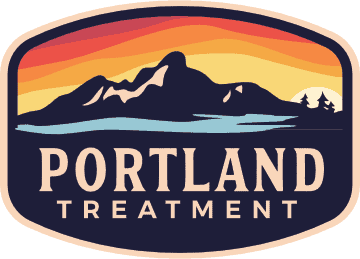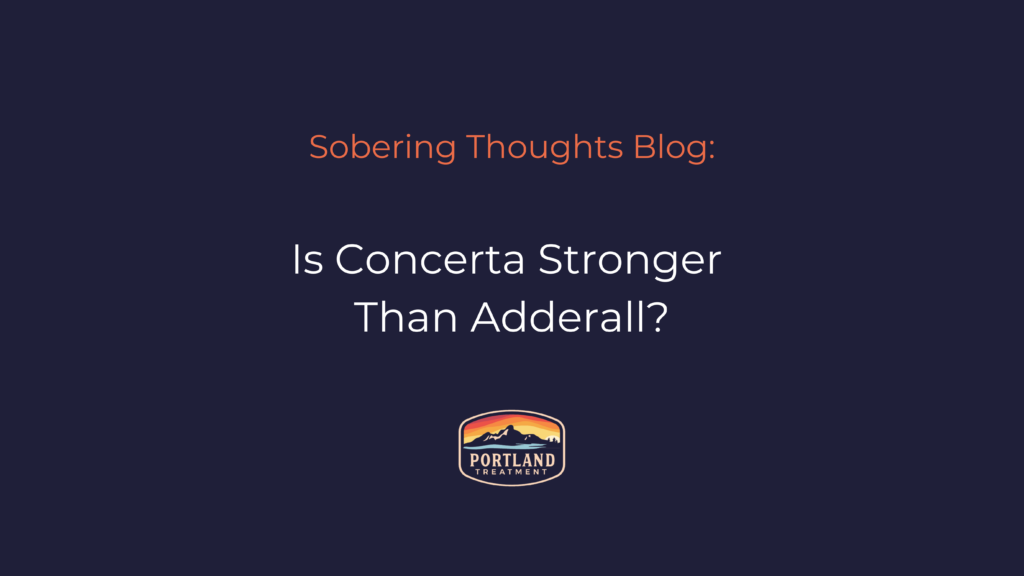In this comprehensive guide, we delve into the critical importance of personalized stimulants treatment plans for individuals dealing with substance abuse, particularly in the vicinity of Portland, Maine. We explore the effects of stimulants, the necessity for tailored treatment approaches, and the key factors to consider when developing personalized plans. We examine the available treatment …
In this comprehensive guide, we delve into the critical importance of personalized stimulants treatment plans for individuals dealing with substance abuse, particularly in the vicinity of Portland, Maine. We explore the effects of stimulants, the necessity for tailored treatment approaches, and the key factors to consider when developing personalized plans.
We examine the available treatment options, the process of developing a personalized treatment plan, and the essential considerations when seeking quality treatment centers in Portland. Whether you or a loved one is struggling with stimulant abuse, this article aims to provide valuable insights and practical guidance for finding effective, personalized treatment solutions in the Portland area.
Understanding the Importance of Personalized Stimulants Treatment
Understanding the importance of personalized stimulants treatment is vital in addressing the complex challenges associated with stimulant addiction and facilitating comprehensive recovery.
Individualized treatment plans are crucial as they cater to the specific needs and circumstances of each individual struggling with stimulant addiction.
Therapy plays a pivotal role in the personalized treatment approach, providing a safe space for individuals to explore the underlying causes of their addiction and develop coping strategies. Medical detoxification ensures a safe and supportive environment for the initial phase of recovery, managing withdrawal symptoms and addressing any medical concerns.
Holistic approaches, encompassing physical, emotional, and spiritual aspects, can greatly enhance the effectiveness of personalized treatment, promoting overall well-being and long-term recovery.
What are Stimulants and their Effects?
Stimulants, including methamphetamine, Ritalin, and others, are psychoactive substances that can lead to addictive behaviors and adverse health effects when abused.
These substances are known for their ability to increase alertness, attention, and energy, making them attractive to individuals seeking enhanced performance or mood alteration. However, methamphetamine and Ritalin can also cause elevated blood pressure, irregular heartbeat, and potentially fatal seizures. Prolonged use of stimulants may lead to mental health issues such as anxiety, paranoia, and hallucinations, along with physical effects like weight loss, dental problems, and skin sores.
The Need for Personalized Treatment Plans
Personalized treatment plans for stimulant addiction are essential due to the diverse nature of substance use disorders and the varying needs of individuals on their transformative journey towards sobriety and recovery.
Regarding addressing stimulant addiction, evidence-based therapies play a crucial role in tailoring treatment plans to the unique needs of each individual. These therapies are rooted in scientific research and clinical expertise, allowing addiction specialists to offer interventions that are proven to be effective for stimulant use disorders.
Plus evidence-based therapies, intensive outpatient programs provide a comprehensive approach to treatment, offering flexibility for individuals to maintain their daily responsibilities while receiving the support and care they need to overcome their addiction.
Furthermore, holistic approaches that encompass physical, emotional, and spiritual well-being are becoming increasingly recognized as essential components of effective treatment plans. These approaches emphasize the interconnectedness of the mind, body, and spirit, promoting overall wellness and sustainable recovery.
Factors to Consider for Personalized Stimulant Treatment Plans
When developing personalized stimulant treatment plans, several factors need to be considered to ensure a comprehensive and effective approach to addiction recovery.
Medical detoxification is a crucial initial step in the process, as it helps to rid the body of the substance and manage withdrawal symptoms.
Individual therapy plays a pivotal role in addressing the psychological aspects of addiction, allowing patients to explore underlying issues and develop coping strategies.
Integrating holistic approaches such as mindfulness practices, yoga, and nutritional guidance can contribute to a more well-rounded and sustainable recovery journey.
By combining these elements, tailored treatment plans can address the unique needs and challenges of individuals struggling with stimulant addiction.
Medical History and Assessment
Gaining a profound understanding of an individual’s medical history and conducting a comprehensive assessment of their current health status are essential steps in customizing effective treatment strategies for stimulant addiction.
These crucial processes not only address the addiction itself but also uncover underlying health issues and determine the most suitable approach to medical care. By delving into the medical history, healthcare professionals obtain invaluable insights into the patient’s past encounters with substance abuse, genetic predispositions, and any co-existing conditions that may contribute to their addiction.
Through a meticulous assessment, healthcare providers can develop tailor-made detoxification protocols that safely manage withdrawal symptoms, taking into account the individual’s unique health profile. These personalized treatment plans go beyond physical aspects and encompass the patient’s psychological and emotional needs, fostering a holistic approach to recovery.
Moreover, if you or someone you know requires detoxification services for drugs and alcohol in Maine, Portland Treatment can assist you in finding the help you need. Our warm and inviting approach aims to guide individuals towards the support and care they deserve. Feel free to reach out to Portland Treatment to explore the available options and embark on a journey towards healing and a brighter future.
Individual Biochemistry and Genetics
Acknowledging the influence of individual biochemistry and genetic predispositions is essential in formulating personalized treatment plans that resonate with the unique needs and experiences of each individual undergoing stimulant addiction recovery.
The understanding of biochemical and genetic factors in addiction treatment has notably transformed the approach towards recovery. Addiction specialists recognize the significance of genetic markers and biochemical pathways in determining an individual’s vulnerability to addiction.
By looking into the intricate interplay of genes, neurotransmitters, and receptors, practitioners can tailor individualized treatment plans that target specific biochemical imbalances and genetic predispositions. This approach has led to remarkable progress in guiding individuals through transformative journeys, where they can address the root causes of their addiction and embark on a path towards sustainable recovery.
Co-occurring Disorders and Conditions
Addressing co-occurring disorders and underlying conditions is integral in developing personalized treatment plans for stimulant addiction, ensuring a holistic approach towards recovery and sustained sobriety.
Individuals with stimulant addiction often experience co-occurring mental health disorders, such as depression, anxiety, or trauma-related conditions. Understanding and treating these concurrent issues is essential for lasting recovery. Utilizing evidence-based therapies like cognitive-behavioral therapy (CBT) and dialectical behavior therapy (DBT) can effectively address these dual diagnoses, providing comprehensive support and equipping individuals with the necessary coping mechanisms.
Moreover, intensive outpatient programs offer structured treatment while allowing individuals to maintain daily responsibilities, facilitating the integration of new skills and strategies into their lives. This level of care allows for ongoing monitoring and support, vital for managing co-occurring disorders and preventing relapse.
Furthermore, holistic therapies incorporating mindfulness practices, yoga, and nutritional counseling can complement traditional treatment approaches, promoting overall well-being and addressing the interconnected nature of substance use disorders and mental health. By integrating these holistic modalities, individuals can achieve a balanced, sustainable recovery.
Lifestyle and Environmental Factors
Considering the influence of lifestyle choices and environmental factors is pivotal in tailoring personalized stimulant treatment plans that support positive healthy changes and foster a supportive recovery environment.
Each person’s journey towards recovery is inherently unique, and it is essential to acknowledge the impact of their environment and lifestyle choices on their treatment plan. By adopting a holistic approach, interventions can extend beyond conventional medication, embracing transformative practices that encourage wholesome healing.
Integrating factors such as nutrition, physical activity, stress management, and social support into the treatment regimen give the power to individuals to make positive changes that can significantly improve their overall well-being. This comprehensive approach acknowledges the interconnectedness of mind, body, and environment, revolutionizing the treatment paradigm.
Available Treatment Options for Stimulant Abuse
Several treatment options are available for individuals seeking support and recovery from stimulant abuse, including therapy, counseling, behavioral interventions, and specialized programs tailored to address stimulant addiction.
Therapy is a fundamental component of addiction treatment, offering individuals a safe space to explore underlying issues, develop coping strategies, and build resilience. Counseling provides personalized guidance and support, gives the power to individuals to navigate challenges and maintain their commitment to recovery. Behavioral interventions, such as cognitive-behavioral therapy, focus on modifying harmful thought patterns and behaviors, fostering positive change, and promoting long-term sobriety. Specialized programs, incorporating medical, psychological, and social support, offer comprehensive care designed to address the complex nature of stimulant addiction.
Therapy and Counseling
Therapy and counseling play pivotal roles in addressing stimulant addiction, providing individuals with the support, guidance, and tools necessary for sustainable recovery and healing.
Behavioral therapy is an essential component of addiction treatment, focusing on modifying unhealthy behaviors and promoting positive changes. It helps individuals recognize and change destructive patterns, develop coping strategies, and build resilience. Therapeutic communities create a supportive environment where individuals in recovery can connect with peers, rebuild social skills, and receive encouragement.
Meanwhile, therapeutic counseling delves into the underlying psychological and emotional factors contributing to addiction, offering personalized guidance and interventions to address these issues effectively.
Pharmacological Interventions
Pharmacological interventions under the guidance of addiction specialists can be integral in managing stimulant addiction and facilitating the detoxification process for individuals undergoing recovery.
These interventions can include medication-assisted treatment (MAT), which involves the use of medications to reduce cravings and withdrawal symptoms, thus supporting the recovery journey. Outpatient programs play a significant role in supplementing pharmacological interventions, as they provide structured support and therapy while allowing individuals to continue their daily lives. Additionally, medical detox is often administered in a controlled environment, ensuring the safe removal of substances from the body under medical supervision.
Through a combination of medication, counseling, and ongoing support, pharmacological interventions give the power to individuals to address the physiological aspects of addiction alongside therapeutic treatments. Specialists carefully assess each patient’s needs and tailor pharmacological interventions to address their specific challenges, emphasizing a comprehensive approach to addiction recovery.
Behavioral and Cognitive Therapies
Behavioral and cognitive therapies encompass a range of structured interventions designed to address addictive thinking patterns and promote positive healthy changes within individuals undergoing stimulant addiction recovery.
Therapy plays a crucial role in addiction recovery by helping individuals identify and modify the thoughts, beliefs, and behaviors contributing to their addiction. Therapeutic communities provide a supportive environment where individuals can connect with others who are going through similar experiences. The focus on mutual support and accountability within these communities encourages positive changes.
Therapeutic counseling offers personalized guidance and strategies to cope with triggers and cravings, fostering long-term recovery.
Support Groups and Community Resources
Engaging with support groups and community resources forms an essential part of the recovery journey, providing individuals with a network of understanding and compassionate peers and mentors.
These groups serve as a safe space for individuals to share experiences, challenges, and triumphs, fostering a sense of camaraderie and reducing feelings of isolation. The exchange of knowledge and empathy in these therapeutic communities can profoundly impact recovery, offering diverse perspectives and practical strategies to navigate through difficult phases.
Additionally, rehab programs often collaborate with community resources to provide holistic support, including vocational training, housing assistance, and ongoing counseling, aiming to give the power to individuals as they embark on their transformative journeys towards healing and wellness.
Developing a Personalized Treatment Plan
The development of a personalized treatment plan involves a collaborative approach with healthcare providers, setting realistic goals and milestones, and incorporating regular monitoring and adjustments to ensure the effectiveness of the treatment process.
Collaborative approach is crucial as it allows healthcare providers to work together with the individual in understanding their unique needs, preferences, and medical history. This partnership fosters a sense of shared decision-making and promotes a more tailored approach to treatment.
Realistic goals and milestones are integral to the success of the treatment plan. These provide a clear framework for progress, while also considering the individual’s capabilities and limitations. It’s essential to set achievable targets that can be adjusted as the individual’s needs evolve.
Regular monitoring and adjustments play a pivotal role in the treatment process. This ongoing evaluation allows healthcare providers to track progress, identify any necessary modifications, and address any emerging concerns promptly.
Collaborative Approach with Healthcare Providers
A collaborative approach with healthcare providers ensures that the treatment plan aligns with the individual’s transformative journey, integrating evidence-based therapies, intensive programs, and therapeutic support within a supportive community environment.
Collaboration with healthcare providers is essential for creating personalized treatment plans that address the unique needs of each individual. This approach facilitates the integration of evidence-based therapies and the implementation of comprehensive, multi-disciplinary care. By drawing on the expertise of various healthcare professionals, patients can benefit from a holistic approach that considers physical, emotional, and social aspects of their well-being.
A supportive community environment plays a crucial role in fostering positive outcomes. It provides a network of encouragement and understanding, contributing to the overall healing process. The interaction with peers who are on similar journeys can offer a sense of belonging and validation, enhancing the individual’s motivation and resilience.
Setting Realistic Goals and Milestones
Setting realistic goals and milestones within the treatment plan allows individuals to track their progress and accomplishments, fostering a sense of achievement and motivation throughout their transformative journey towards recovery.
It is crucial for individuals undergoing treatment to have clear objectives that are attainable and sustainable. By breaking down the recovery process into manageable steps, they can see tangible progress, which can be incredible given the power going.
Individual therapy sessions play a pivotal role in this aspect by providing personalized support to address specific challenges and facilitate personal growth. Outpatient programs offer a structured yet flexible approach, allowing individuals to apply learned coping mechanisms in their daily lives.
Regular Monitoring and Adjustments
Regular monitoring and adjustments within the treatment plan allow for dynamic adaptations that cater to the evolving needs and progress of individuals on their transformative journey, fostering a personalized and effective approach to recovery.
Medical detoxification is a crucial component of addiction recovery, as it focuses on safely managing the physical effects of withdrawal. Individual therapy, on the other hand, provides a supportive environment for exploring underlying emotional factors contributing to addiction. Integrating holistic approaches such as yoga, meditation, and nutritional counseling further enriches the recovery process by addressing the mind, body, and spirit.
Finding Quality Treatment Centers in Portland, Maine
Finding quality treatment centers in Portland, Maine, involves researching accredited facilities, considering location and amenities, and evaluating insurance coverage and financial considerations to ensure accessible and effective addiction treatment.
Accreditation is a crucial aspect as it ensures that the treatment center meets specific quality standards and follows ethical practices. Considering the location can profoundly impact the recovery journey, as accessibility to family and support networks can play a vital role in the treatment process.
Amenities and facilities offered, such as therapy options, outdoor spaces, and holistic treatments, can contribute to a more comprehensive and effective recovery experience.
When evaluating insurance coverage, it’s essential to research whether the treatment center is in-network with your insurance provider, and also to understand the extent of coverage for addiction treatment services. Financial considerations often involve exploring potential financial assistance, payment plans, and the overall affordability of the treatment programs.
Researching Accredited Facilities
Researching accredited facilities ensures that individuals receive comprehensive and effective treatment under the guidance of experienced addiction specialists within a supportive and professional addiction treatment center.
Accredited facilities adhere to high standards of care, providing evidence-based treatment plans tailored to each individual’s needs. By choosing a reputable facility, individuals can access a range of services such as outpatient rehab programs, counseling, and aftercare support. This comprehensive approach addresses not only the physical aspects of addiction but also the mental and emotional components, promoting long-term recovery and a healthier lifestyle.
Considering Location and Amenities
Considering the location and amenities of treatment centers in Portland, Maine, is crucial in ensuring accessibility, comfort, and a supportive environment for individuals undergoing addiction recovery.
Portland, Maine offers a serene setting that can be highly conducive to recovery. The proximity to natural landscapes and peaceful surroundings can play a significant role in the healing process. Having access to world-class medical care and addiction treatment centers is essential for comprehensive support. Ensuring a balance between a tranquil environment and advanced medical facilities can significantly enhance the recovery journey.
Outpatient rehab services extend the support beyond the treatment centers, enabling individuals to seamlessly integrate recovery into their everyday lives.
Insurance Coverage and Financial Considerations
Evaluating insurance coverage and financial considerations facilitates informed decisions regarding treatment plans and the selection of suitable addiction treatment centers that align with individuals’ needs and resources.
Insurance coverage plays a critical role in addressing concerns about the affordability of addiction treatment. By exploring the extent of coverage for detoxification, inpatient and outpatient therapy, medication-assisted treatment, and other specialized services, individuals can effectively plan their recovery journey.
Financial considerations also encompass the cost of aftercare support, including sober living and transitional housing. It’s essential to thoroughly assess the financial implications of each treatment phase and the availability of insurance benefits to ensure continuous support through the recovery process.
Why Portland Treatment is an Excellent Choice for Addiction Treatment in Maine
At Portland Treatment, we understand the complexity of battling addiction and the importance of finding the right treatment. Our approach to addiction treatment is holistic, focusing not only on the physical aspects but also on the emotional and psychological well-being of our clients.
Our Programs and Services
Our treatment programs are comprehensive and personalized. We offer a range of services tailored to meet the unique needs of each individual. This includes:
- Partial Hospitalization Program (PHP): Ideal for those seeking intensive therapy while residing at home or in a sober living environment.
- Intensive Outpatient Program (IOP): A flexible option that allows clients to balance therapy with their daily responsibilities.
- Outpatient Treatment: A supportive bridge between intensive care and long-term recovery, offering customized support for sustainable sobriety.
Treating a Range of Conditions
We specialize in treating various substance addictions, including Adderall, Alcohol, Ativan, and others. Additionally, our expertise extends to addressing mental health issues such as anxiety disorders, depression, and PTSD, which often co-occur with substance abuse.
Commitment to Safe and Ethical Treatment
Our commitment to providing safe, ethical, and effective treatment is unwavering. At Portland Treatment, we believe in empowering our clients with the tools and support necessary for a successful recovery journey.
Contact Us
If you or a loved one is struggling with addiction, contact us today to learn more about our programs and how we can help you on the path to recovery. Portland Treatment is your partner in overcoming addiction and achieving lasting wellness.






